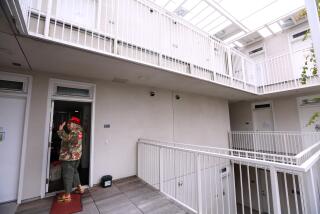Transit: Taxes, Funding and the MTA
The failure of public transit goes back to the 1960s, when the overwhelming preponderance of the population wisely chose the automobile as its primary mode of transportation. Major advantages of the automobile include convenience, low cost and, most important, saving time.
However, in the early 1980s, a bunch of left-wing socialists and Democrats got together to push Proposition A (the half-cent increase in sales tax) and promised to reduce bus fares to 50 cents a ride if passed. Proposition A passed by a very slight majority.
Then came Proposition C, another half-cent increase in the sales tax. Again, the left-wing Democrats and socialists mounted a massive campaign and this measure passed by about 50.2%. A group of Libertarians filed suit in state court to overturn Proposition C as not meeting the two-thirds majority required for a special tax under Proposition 13.
Unfortunately, the state Supreme Court upheld this tax by stating that the transit district existed before the passage of Proposition 13 and therefore the two-thirds requirement was not a requirement (a truly PC decision).
Thus, the left-wingers and socialists have succeeded in adding 1 cent to the Los Angeles sales tax. Surprisingly, this amounts to a $1-billion subsidy from sales taxes to the Metropolitan Transportation Authority every year, forever.
The grandiose scheme of the transit socialists was to cover Southern California with fixed-rail transit like the Metrolink. The grand scheme was to spend $185 billion--yes, billion--of taxpayers’ money on fixed-rail transit. For some reason the MTA politicians have now decided to reduce this obscene extravagance to only $65 billion, a reduction of 60%!
Experience has shown that Southern California residents do not use transit. More than 90% of us prefer to use our own transportation, and all of the billions being spent on transit supply fewer than 10% (more like 5%) of the transportation needs.
There appears to be no end in sight. Even the Rancho Palos Verdes City Council has decided to improve transit on the hill. RPV is subsidizing transit to the tune of about $1 million a year (Proposition A and Proposition C money), yet now they want to spend $100,000 or $150,000 on a bike path and hundreds of thousands more on other transit “improvements.”
Evidently, the tax increases recently imposed on the residents of RPV--$200,000 in fee increases, $850,000 for a landscaping and lighting assessment district, and a $2-million-plus increase in the utility tax--are giving our local politicians too much money to spend and they just can’t think of enough ways to spend it all. Incidentally, none of these tax increases was ever placed on the ballot, as promised by a number of council members when they were running for office.
The history of public transit in Southern California shows that it is a gross, extravagant failure and will continue to be a costly failure in the future. We, as responsible citizens, must get rid of the left-wing politicians who believe that the government must provide all and that individual responsibility is a thing of the past.
ALAN CARLAN Rancho Palos Verdes
More to Read
Sign up for Essential California
The most important California stories and recommendations in your inbox every morning.
You may occasionally receive promotional content from the Los Angeles Times.










